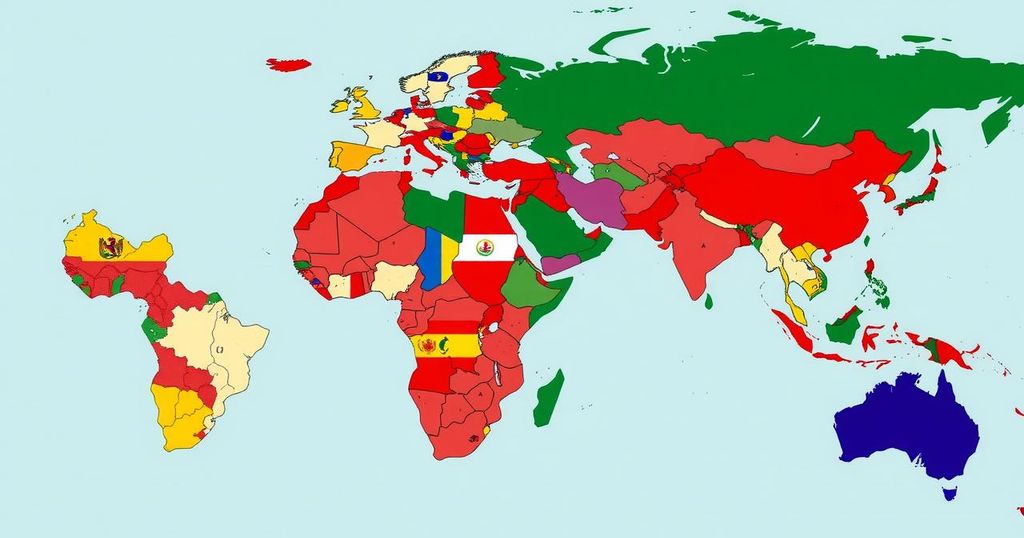Egypt has strengthened its alliance with Eritrea and Somalia in response to perceived threats from Ethiopia. In October 2024, leaders met in Asmara to enhance military cooperation and support Somalia’s counterterrorism efforts. This alliance reflects Egypt’s strategy to maintain influence amidst tensions over the Grand Ethiopian Renaissance Dam and Ethiopia’s maritime agreements with Somaliland.
In recent developments, Egypt has intensified its strategic collaboration with Eritrea and Somalia, motivated by perceived threats from Ethiopia towards its regional interests. In October 2024, leaders from these three nations gathered in Asmara for a summit focused on enhancing military cooperation and ensuring regional stability. They reaffirmed support for Somalia’s counterterrorism initiatives, with Egypt pledging troop deployments as part of the African Union mission, signaling a response to Ethiopia’s growing influence in the Horn of Africa.
This trilateral alliance is significantly influenced by ongoing tensions over the Grand Ethiopian Renaissance Dam (GERD), which Egypt views as a critical risk to its water security. The recent agreement between Ethiopia and Somaliland for maritime access has exacerbated these tensions, prompting Somalia to align more closely with Egypt and Eritrea. Analysts interpret the summit as a strategic maneuver by Egypt to bolster its influence in the region amid rising hostilities surrounding Nile water rights and control over the Red Sea.
Ethiopia’s pursuit of maritime access has alarmed Somalia, raising concerns over territorial integrity and prompting a strengthened military cooperation with Egypt and Eritrea. Egypt’s approach encompasses both diplomatic and military strategies, including arms shipments to Somalia and the formation of a joint committee for foreign ministers to oversee strategic collaboration across various sectors.
As regional tensions endure, this emerging alliance stands to significantly alter the regional power dynamics, potentially leading to heightened military and diplomatic confrontations. The next few months will be pivotal in assessing the impact of this strategic alignment on ongoing disputes related to access to both the Nile and Red Sea.
The Horn of Africa has long been characterized by complex geopolitical relationships, particularly regarding the water rights of nations sharing the Nile River. Egypt, largely reliant on the Nile for its water supply, perceives Ethiopia’s construction of the Grand Ethiopian Renaissance Dam (GERD) as a direct threat to its water security. Additionally, the recent agreement between Ethiopia and Somaliland for maritime access further complicates the dynamics, as it intensifies Egypt’s concerns about its influence being undermined in the region. The crux of Egypt’s alliance with Eritrea and Somalia lies in a mutual alignment against Ethiopia, aiming to stabilize the region and counteract Ethiopian ambitions.
In summary, Egypt’s fortified alliance with Eritrea and Somalia is a strategic response to the mounting influence of Ethiopia, catalyzed by significant regional tensions surrounding water security and maritime access. This collaboration, underscored by military support and a united front against terrorism, aims to counteract Ethiopia’s expanding regional role. The evolving dynamics of this trilateral partnership will likely have profound implications for the balance of power in the Horn of Africa, especially concerning ongoing disputes over the Nile and access to the Red Sea.
Original Source: www.garoweonline.com






